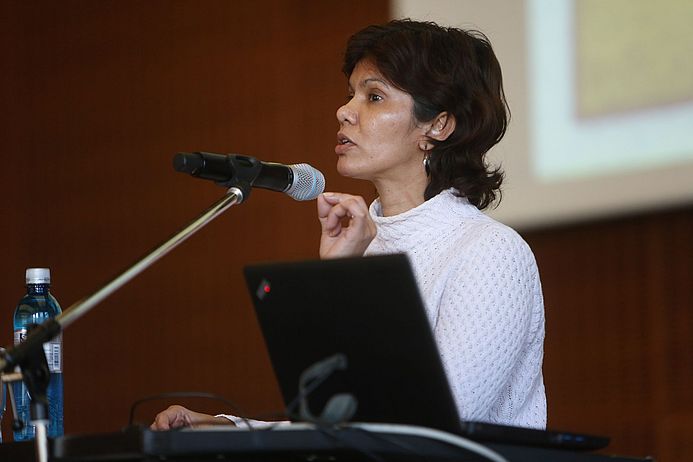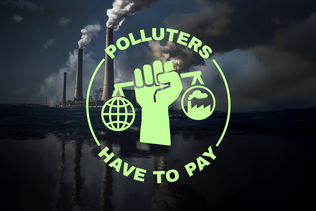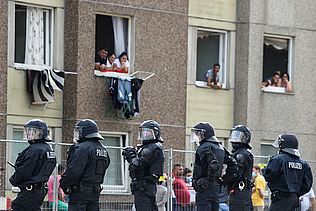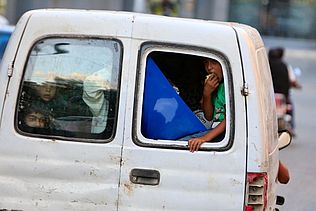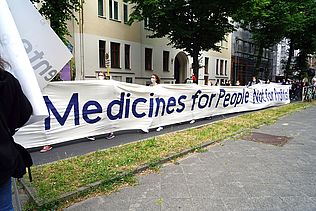medico: Whenever there is talk of successful policies against the Covid 19 pandemic, Sri Lanka is always mentioned: a tough lockdown keeps infections, and thus deaths, at a low level.
Shreen Saroor: Yes, we are praised all over the world. The actual situation is different, and this is also reflected in the rising number of deaths, now per day we have 5 to 6 deaths. We are at community spreading stage but government deny it and open the country for tourism. What is true is that we are facing a policy of hardship here. The fight against the pandemic is a matter for the military and the police, just as every area of politics and social life is being militarised here. They create clusters (garment factory cluster, fish market cluster, church cluster, mosque cluster , migrant returnee cluster etc) targeting the poorest of the poor, workers and religious minorities and do specific test around them, and those who tested positive or inconclusive are taken to special treatment centres run by the military, where there is no treatment. Since conditions there are often unhygienic, it is precisely these centres that have become one of the hotspots of the pandemic, due to cross spreading. People are afraid, sending messages to each other via Whatsapp and social media about where the police and military are carrying out tests. In the treatment centres, people are only tested and if they become sicker than they are sent to hospitals assigned for Covid treatment. People try to avoid going to the hospitals because there is antigen/PCR test before one gets admitted in the hospital and fearing isolation and none treatment of other decease people (specially pregnant women, old ones and people with chronic illness are not accessing medical treatment.
The fear is greatest among Muslims. Those who die of corona are burnt immediately. Muslims, however, are forbidden to be burnt for religious reasons: to be burnt is a sacrilege. Yet the Sri Lankan state has not only forcibly burnt people who died of corona, but also people who died of completely different diseases (on suspicion of corona infected). The burnings continue even though the World Health Organisation, OHCHR and UN independent experts have explicitly criticised this practice and the local virologists and health professional bodies have spoken in favour of allowing safe burial.
Is this specifically targeting Muslims, or does the government just not care about the particular suffering inflicted on Muslims?
Since 2009, since President Rajapaksa's government and the racism of the Sinhala Buddhist majority won their war against the Tamil Hindu minority, Muslims have become the new enemy. This has escalated further with the Easter attacks of 2019. Repeatedly Sinhala mobs have attacked, vandalised and burnt Muslim homes, Muslim shops and mosques. Now the government media is blaming us for the pandemic: Muslims brought in the virus. Incidentally, this does not mean that discrimination against Tamils has abated, on the contrary: everyone who does not belong to the Sinhalese majority society is warned against here. The pandemic gets to the heart of the matter.
How can Sri Lanka still become a model case of pandemic response?
At the end of January, the UN presented a dramatic report on the human rights situation in Sri Lanka, listing everything that is happening here: the militarisation of the entire administration and public life, the occupation of more and more state offices by military officers who are personally accused of serious war and human rights crimes, the increasing control of all civil society activities - the fact, for example, that no fewer than 40 NGOs have been subjected to targeted intimidation by the police, government officers, secret police and army. There is particular criticism of the government's declared abdication of its responsibility to deal with the war and human rights crimes committed during the civil war. The European Union and especially the Federal Republic of Germany, however, oppose all attempts to force the government to comply with its obligations. There are demands to deal with the situation in Sri Lanka in the UN Security Council and to use extraterritorial jurisdictions. The EU, however, wants to continue working with a State that is so arrogant a and has explicitly stated that it will not comply with UN resolutions or any recommendation with UN independent experts. With China’s help and latestly Pakistan joining in, Sri Lanka government is planning to walk out clean from the UNHRC after so many years of victims’ and witness struggle to demand for truth, justice and accountability. Nothing materialised and all local avenues including Supreme Court and Human rights commission being severly politicized.
The interview was conducted by Thomas Rudhof-Seibert.

